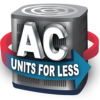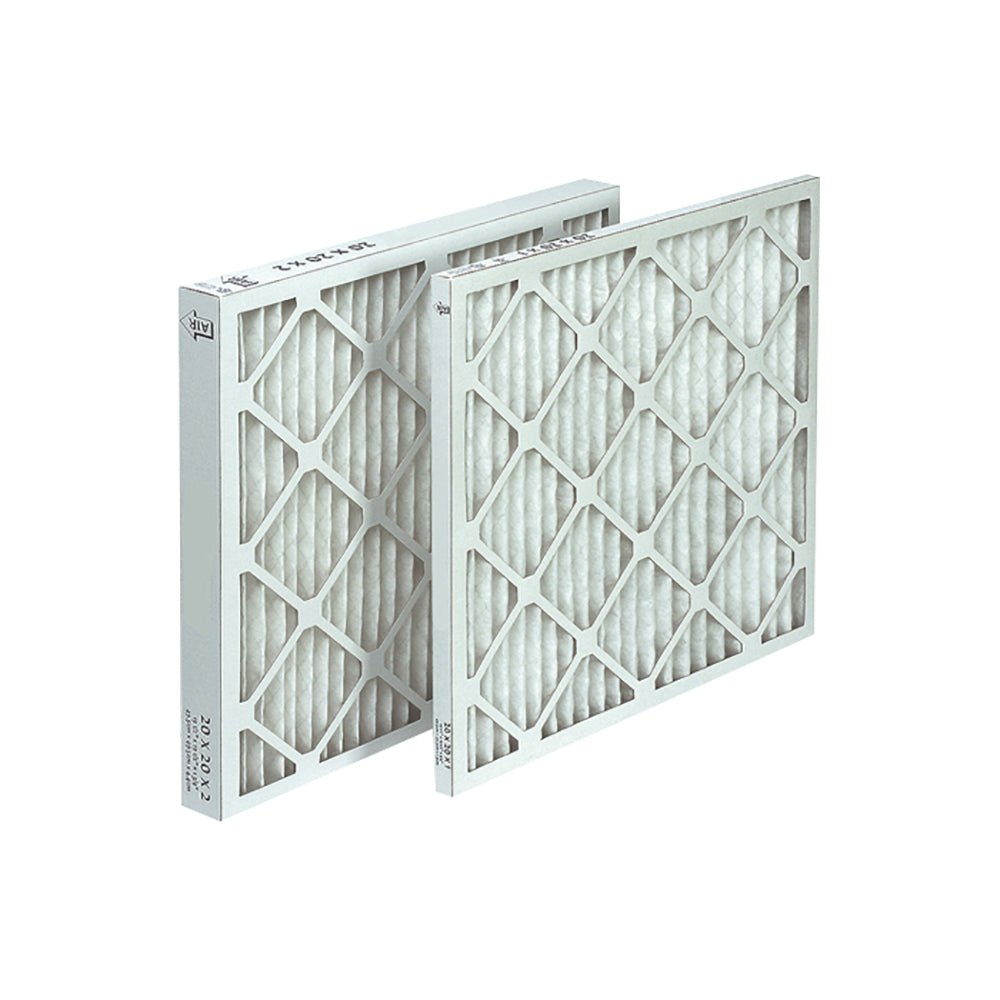Heating, Ventilation, and Air Conditioning (HVAC) systems play a crucial role in maintaining a comfortable indoor environment. One of the most critical yet often overlooked components of these systems is the HVAC filter. While it may seem like a simple part, the filter performs the essential task of ensuring clean, breathable air circulates through your home or office. But how exactly does an HVAC filter work? In this guide, we'll explore the science behind HVAC filters, how they contribute to air quality, and why it’s important to maintain them regularly.
What is an HVAC Filter?
An HVAC filter is a porous material, typically made of fiberglass, pleated paper, or cloth, that is placed between the intake of the HVAC system and the mechanical components like the blower fan and coils. Its main job is to trap dust, dirt, allergens, and other particles before the air is heated or cooled and circulated into the living spaces.
How Do HVAC Filters Work?
HVAC filters work by capturing airborne particles as air passes through them. The process is relatively straightforward, but the filter’s ability to trap particles efficiently depends on several factors, including material, size, and filter rating.
1. Filtration Through Physical Barrier
When air flows through the HVAC system, the filter acts as a physical barrier, trapping larger particles like dust, hair, and pet dander. These particles are caught on the surface of the filter and prevented from entering the HVAC system and re-circulating through the air in your home.
2. Electrostatic Attraction
Many high-efficiency filters use electrostatic charge to improve their performance. These filters generate static electricity that attracts and traps smaller particles, such as pollen, mold spores, and even some bacteria. Electrostatic filters are especially useful for capturing particles that are too small to be trapped by mechanical means alone.
3. Fibers and Pleats for Maximum Efficiency
The design of an HVAC filter also contributes to its efficiency. Filters with pleated designs have more surface area, allowing them to capture more particles than flat filters. Additionally, filters made with dense, high-quality fibers are better at trapping smaller contaminants without restricting airflow.
4. Pressure Drop and Airflow Resistance
As the filter collects debris, it can also start to restrict airflow. This is known as "pressure drop." Too much buildup on the filter can reduce the system's efficiency, making it harder for your HVAC system to circulate air and maintain comfortable temperatures. That's why it’s important to clean or replace the filter regularly.
Types of HVAC Filters
There are several types of HVAC filters, each designed to meet different air quality needs and performance standards. Understanding the different types can help you choose the right filter for your home or business.
1. Fiberglass Filters
These are the most common and affordable filters. Made from layers of fiberglass, they are effective at capturing larger particles like dust and dirt. However, they are not very efficient at trapping smaller particles like allergens or smoke.
2. Pleated Filters
Pleated filters are made from folded layers of synthetic fabric or paper. The pleats increase the surface area, allowing the filter to trap more particles than a standard fiberglass filter. These filters are a popular choice for households with pets or allergies.
3. Electrostatic Filters
These filters use self-charging electrostatic properties to attract and capture small particles. They are available in both disposable and washable options and are great for households that need enhanced filtration but don’t want to invest in a high-end filter.
4. HEPA Filters
High-Efficiency Particulate Air (HEPA) filters are the gold standard for air filtration. They can capture up to 99.97% of particles as small as 0.3 microns. HEPA filters are commonly used in medical settings but can also be installed in some residential HVAC systems to provide the highest level of air purification.
5. Activated Carbon Filters
These filters are designed to trap odors and chemical vapors in addition to airborne particles. They contain a layer of activated carbon that absorbs harmful gasses and smells, making them ideal for homes with smokers, pets, or strong cooking odors.
Why Are HVAC Filters Important?
Maintaining clean air in your living space is essential, especially for people who suffer from allergies, asthma, or other respiratory conditions. HVAC filters offer a range of benefits that go beyond just temperature control.
1. Improved Air Quality
By trapping dust, pollen, mold spores, and other airborne particles, HVAC filters prevent these contaminants from circulating through your home. This helps improve indoor air quality, reducing the risk of respiratory issues and allergic reactions.
2. Protection of HVAC Components
Filters also protect the internal components of your HVAC system, such as the blower motor and evaporator coil. Dust and debris can cause wear and tear on these parts, reducing the system's efficiency and potentially leading to costly repairs. A clean filter can prolong the life of your HVAC unit.
3. Energy Efficiency
A dirty filter makes your HVAC system work harder, which can lead to increased energy consumption. By keeping your filters clean and replacing them when necessary, you can reduce energy use and lower your utility bills.
4. Odor Reduction
Activated carbon filters help in reducing unpleasant odors from smoke, pets, and cooking. This makes them an excellent option for maintaining a fresh-smelling home environment.
How Often Should You Replace or Clean Your HVAC Filter?
The lifespan of an HVAC filter varies depending on its type, the environment, and usage. However, a general rule of thumb is to replace or clean your filter every 1 to 3 months. In households with pets, smokers, or people with allergies, you may need to replace the filter more frequently.
Signs You Need to Replace Your HVAC Filter
- Reduced airflow or uneven heating/cooling
- Increased dust accumulation around your home
- Higher energy bills
- Unpleasant odors or musty smells
How to Choose the Right HVAC Filter for Your Home
Choosing the right HVAC filter depends on several factors, including the specific needs of your household, the type of HVAC system you have, and your budget. Here are a few things to consider:
1. MERV Rating
The Minimum Efficiency Reporting Value (MERV) rating indicates a filter's ability to capture particles. Filters with a higher MERV rating (ranging from 1 to 20) are more effective at trapping smaller particles. For most residential systems, a MERV rating between 8 and 13 is sufficient.
2. Allergies and Health Concerns
If you or someone in your household suffers from allergies or asthma, you might want to opt for a high-efficiency filter like a HEPA filter or one with a high MERV rating.
3. Pet Owners
Pet hair and dander can quickly clog a filter. If you have pets, choose a filter with a higher MERV rating or consider an electrostatic or pleated filter to keep your home’s air cleaner.
Conclusion: The Vital Role of HVAC Filters
HVAC filters might seem like a minor component of your heating and cooling system, but their role in maintaining indoor air quality and system efficiency is critical. Understanding how they work, choosing the right type, and maintaining them properly can have a significant impact on your comfort, health, and energy bills. By regularly checking and replacing your HVAC filters, you're not only ensuring cleaner air but also helping your HVAC system run smoothly and efficiently.


